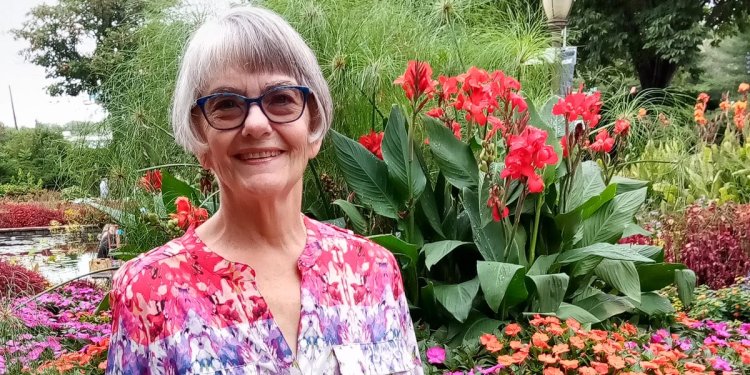A 71-year-old explains all the ways she's countering loneliness. They include tacos and a cellphone.
After Susan Skinner's husband died, she turned to "Taco Tuesdays" and began calling up people on her phone's contact list to maintain relationships.

Susan Skinner
- After Susan Skinner's husband died, she worried she would get lonely.
- The 71-year-old decided to prioritize social connections through weekly "Taco Tuesdays."
- She's also found success calling people on her contact list with whom she hasn't spoken in a while.
When Susan Skinner, 71, went to a recent doctor's appointment, she was surprised that the doctor asked her about her social activities.
"She's never asked a question like that before," Skinner told Business Insider.
The appointment happened about a year after her husband died, and Skinner said the doctor likely wanted to be sure she wasn't isolating herself in the grieving process. While Skinner said she wasn't in isolation, she was happy — thinking back on it — that her doctor asked that question.
"I just was surprised by that psychological approach to a medical appointment," Skinner said, "but pleased for her concern about my mental health in regards to loneliness." Susan Skinner
Loneliness impacts people of all ages, which US Surgeon General Vivek Murthy emphasized when he declared loneliness an epidemic in May. However, older adults often do not have the same avenues younger generations have when it comes to facilitating connections, especially with over half of them living on incomes of $30,000 or less a year. That requires them to be more proactive and search for opportunities in their communities that could help them meet new people.
Skinner said she recognizes how hard it can be to maintain friendships as she ages and wants to be sure she doesn't succumb to the epidemic.
"I just became more aware that I need that contact, and I want to keep active," she said. "And so I'm trying to learn to do new things because doing new things continues the brain growth. And the same way with reaching out and establishing friends. When you have better social connections, it just helps your brain stay wired in positive ways."
The importance of trying new things
Skinner has lived in the same Nebraska area since 1976, allowing her to build relationships that have lasted decades. But she said the "big switch" for her after her husband died was living alone, and she no longer had a consistent daily interaction that she could rely on — so she created opportunities to ensure she was seeing people at least once a week.
"Taco Tuesdays" is one method Skinner has adopted. She said a local restaurant offers a deal for tacos every Tuesday for three or four dollars, and she said it's a great opportunity for those "on really limited incomes" to meet up for a meal and chat. Skinner said she uses Facebook to reach out to people in the area as each Tuesday comes around, and it's allowed her to maintain her connections with friends over a cheap meal.
Another method Skinner has taken on is quite simple — she scrolls through her phone's contact list, finds people she hasn't spoken to in a while, and calls them up.
"There was one day when I was particularly struggling, and I was I was feeling isolated and lonely and kind of like, 'Oh crumb, nobody likes me,' and I opened up my contacts on my phone, and I just started going through and I'm like, 'Oh, I've not talked to this person in a long time," Skinner said. "So I just called them."
As Skinner works to build connections, she's also doing all she can to make the most out of the time she has each day. She works as a substitute teacher and does some writing for her local newspaper, and she's also been making an effort to learn new skills. For example, she said she's been going to her local senior center to learn how to play the card game "10-point pitch," and she's been teaching herself how to make low-carb meals to help with her health.
BI has previously reported on the impact the loneliness epidemic has had on older adults, along with how some of them have found ways to avoid isolation. Preeti Malani, a professor of medicine at the University of Michigan, told BI that "your immunology changes when you experience joy and togetherness."
"Purpose is a big part of health, and when you look at people who've suffered a lot of losses, and you're like, 'I don't know how you are able to get out of bed every day,' a lot of times it's purpose," Malani said. "It's the idea that what I'm doing is really important to others."
Skinner agreed — she said that "as I understand the research, the more you withdraw, it can shorten your life and make it harder to round from illnesses. " Now, her focus is on growing the friendships she's made into deeper relationships, which she said "takes quite a bit of time."
"I can't remember the research on how many hours together it takes to make someone a close friend, but it's a lot," she said. "So it's just a matter of having someone where you could think, 'Would this be someone I could call up and say that I'm just having a really bad day, I need to talk, or just tell me what's going on with you,' something like that."
What's Your Reaction?




















